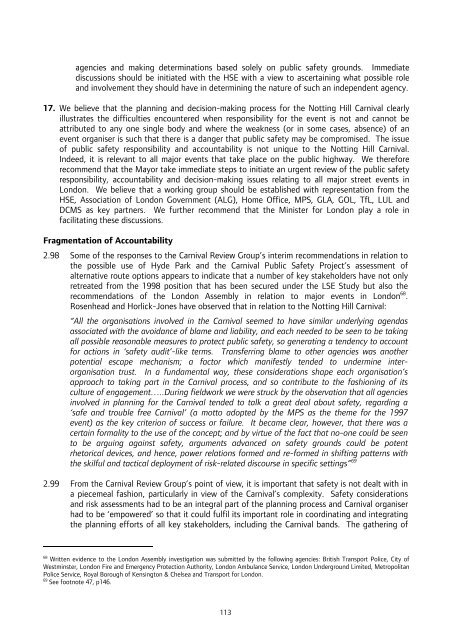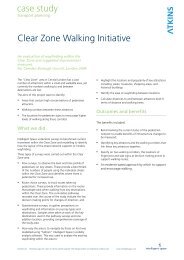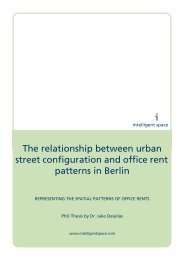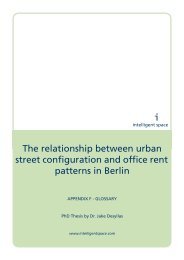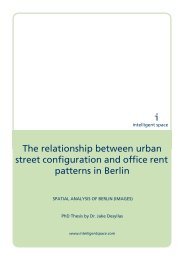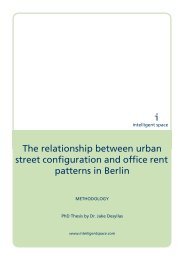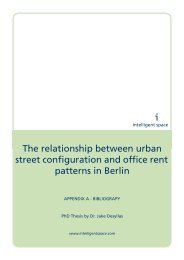Notting Hill Carnival Strategic Review - Intelligent Space
Notting Hill Carnival Strategic Review - Intelligent Space
Notting Hill Carnival Strategic Review - Intelligent Space
You also want an ePaper? Increase the reach of your titles
YUMPU automatically turns print PDFs into web optimized ePapers that Google loves.
agencies and making determinations based solely on public safety grounds. Immediate<br />
discussions should be initiated with the HSE with a view to ascertaining what possible role<br />
and involvement they should have in determining the nature of such an independent agency.<br />
17. We believe that the planning and decision-making process for the <strong>Notting</strong> <strong>Hill</strong> <strong>Carnival</strong> clearly<br />
illustrates the difficulties encountered when responsibility for the event is not and cannot be<br />
attributed to any one single body and where the weakness (or in some cases, absence) of an<br />
event organiser is such that there is a danger that public safety may be compromised. The issue<br />
of public safety responsibility and accountability is not unique to the <strong>Notting</strong> <strong>Hill</strong> <strong>Carnival</strong>.<br />
Indeed, it is relevant to all major events that take place on the public highway. We therefore<br />
recommend that the Mayor take immediate steps to initiate an urgent review of the public safety<br />
responsibility, accountability and decision-making issues relating to all major street events in<br />
London. We believe that a working group should be established with representation from the<br />
HSE, Association of London Government (ALG), Home Office, MPS, GLA, GOL, TfL, LUL and<br />
DCMS as key partners. We further recommend that the Minister for London play a role in<br />
facilitating these discussions.<br />
Fragmentation of Accountability<br />
2.98 Some of the responses to the <strong>Carnival</strong> <strong>Review</strong> Group’s interim recommendations in relation to<br />
the possible use of Hyde Park and the <strong>Carnival</strong> Public Safety Project’s assessment of<br />
alternative route options appears to indicate that a number of key stakeholders have not only<br />
retreated from the 1998 position that has been secured under the LSE Study but also the<br />
recommendations of the London Assembly in relation to major events in London 68 .<br />
Rosenhead and Horlick-Jones have observed that in relation to the <strong>Notting</strong> <strong>Hill</strong> <strong>Carnival</strong>:<br />
“All the organisations involved in the <strong>Carnival</strong> seemed to have similar underlying agendas<br />
associated with the avoidance of blame and liability, and each needed to be seen to be taking<br />
all possible reasonable measures to protect public safety, so generating a tendency to account<br />
for actions in ‘safety audit’-like terms. Transferring blame to other agencies was another<br />
potential escape mechanism; a factor which manifestly tended to undermine interorganisation<br />
trust. In a fundamental way, these considerations shape each organisation’s<br />
approach to taking part in the <strong>Carnival</strong> process, and so contribute to the fashioning of its<br />
culture of engagement…..During fieldwork we were struck by the observation that all agencies<br />
involved in planning for the <strong>Carnival</strong> tended to talk a great deal about safety, regarding a<br />
‘safe and trouble free <strong>Carnival</strong>’ (a motto adopted by the MPS as the theme for the 1997<br />
event) as the key criterion of success or failure. It became clear, however, that there was a<br />
certain formality to the use of the concept; and by virtue of the fact that no-one could be seen<br />
to be arguing against safety, arguments advanced on safety grounds could be potent<br />
rhetorical devices, and hence, power relations formed and re-formed in shifting patterns with<br />
the skilful and tactical deployment of risk-related discourse in specific settings” 69<br />
2.99 From the <strong>Carnival</strong> <strong>Review</strong> Group’s point of view, it is important that safety is not dealt with in<br />
a piecemeal fashion, particularly in view of the <strong>Carnival</strong>’s complexity. Safety considerations<br />
and risk assessments had to be an integral part of the planning process and <strong>Carnival</strong> organiser<br />
had to be ‘empowered’ so that it could fulfil its important role in coordinating and integrating<br />
the planning efforts of all key stakeholders, including the <strong>Carnival</strong> bands. The gathering of<br />
68<br />
Written evidence to the London Assembly investigation was submitted by the following agencies: British Transport Police, City of<br />
Westminster, London Fire and Emergency Protection Authority, London Ambulance Service, London Underground Limited, Metropolitan<br />
Police Service, Royal Borough of Kensington & Chelsea and Transport for London.<br />
69<br />
See footnote 47, p146.<br />
113


